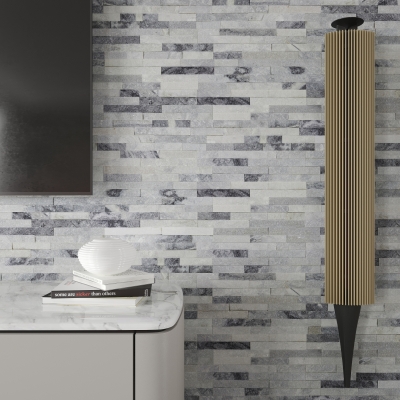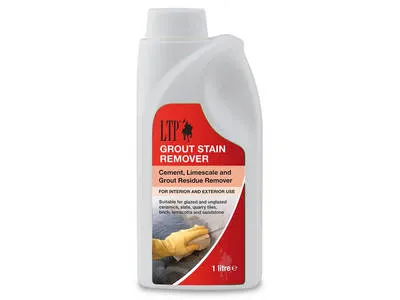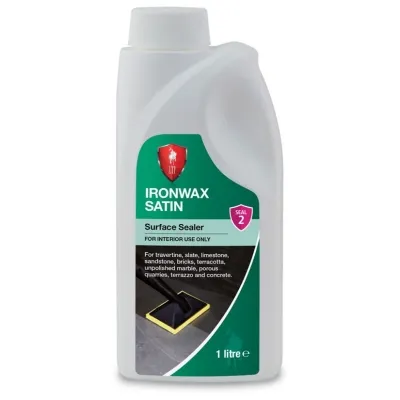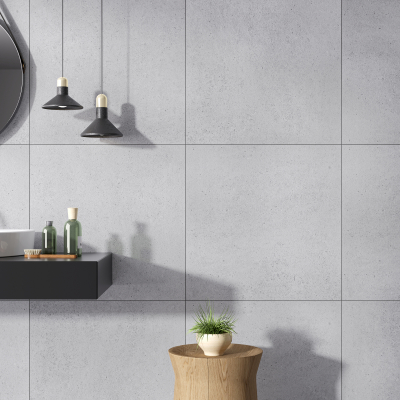What are Patio Tiles? Usage & Options
Patio tiles are made from natural stones or man-made porcelain tiles that enable us to have a hard surface area within our outdoor living space, an area where we can set our tables and chairs for all our outdoor family breakfast and dinner times, put our swing benches or hammocks on for those hot summer days while we swing away and read a book or simply swing away with our thoughts, an area outdoors where we will not get our feet muddy.
Patios, in the best and simplest way, help extend our indoor living space to our external living area of our homes. Whether top covered or open-top, having a hard surface area externally can be magical if planned, installed and made use of smartly.
What defines stone suitable for external use?
Patio tiles are defined by their construction in terms of how thick, slip resistant, durable etc., so these factors must be considered, including the weight it will support, ability to handle freezing and thawing during the changing temperatures, the use of de-icing products (salt or others) and its general environment, unless all these factors are considered, you may end up choosing the wrong tiles that may not be best suited for external use. There are exceptions, but this depends highly on the type of installation for example, top covered etc. rather than the type of and design of the stone itself.
To build a pleasant outdoor living space such as a patio or simply a walkway, paving stones are the ideal solution. Stylish and durable, they look great and will withstand the changes of seasons throughout the year. While it is very simple to lay paving tiles, the ground must still be properly prepared, so they do not shift or become dislodged in any way.
Do I need to seal my paving stones?
To prevent stains during the course of its life, you can apply a sealer to your paving stones. The sealer also works to reduce discolouration by blocking out sunlight. However, the application of sealant is optional in most cases since the paving stones are specifically built to last in extreme conditions and whether changes though, there are some paving tiles that are recommended to be sealed regardless.
Can I use porcelain tiles for my patio installation?
Yes, is the short answer however, even though porcelain can be used externally, there are again some key factors to take into consideration.
1) Is it slip resistant? Though man-made, man makes things either suitable or not suitable for a particular use, stay away from polished porcelain for external applications as it will be like walking on ice when wet and become extremely slippery, any porcelain considered for external use has to be rated as “anti-slip” to be suitable for outdoor installations otherwise they will become hazardous and result in accidents.
2) Can porcelain handle external temperatures? Generally, even thinner porcelain tiles are frost proof, meaning that they can be used outside and won't be affected by temperature variations. Ask your supplier if porcelain tiles can be used outside before ordering the tiles.
3) What bedding should I use? Though natural paving stones do nearly always come in 20-30 mm thicknesses to help it cope with the elements, man-made external porcelain can be produced to be much thinner than 30 mm as porcelain will not react the same way as natural paving stones will to changes in temperature and dry and wet conditions however, for this reason, porcelain installations are nearly always done on a cement base to help support the tiles to minimise the risk of damage and cracking during their lifetime. 20 mm thick porcelain tiles have become popular with pedestal options. If you do not have a concrete base, you can always look into 20mm thick porcelain pavers.
4) Do I need to seal porcelain tiles? No, although there are products that is out there to give it another protective barrier, porcelain tiles do not have to be sealed like a natural paving stone will have to be.
Check out our anti-slip porcelain range which includes our Naples Grey, Nexus Grey, Silver Grey and our Almeria Dark grey porcelain from £23.99/m2.
Which types of natural stones are best for patios?
Slate
Slate tiles are one of the softer natural stone tiles out there, but it is still tough enough to suit any deck or patio area. Our Brazilian Black Slate Paving - Calibrated Riven currently at £35.99/m2 for the market favourite Grand Opus pattern is a highly popular choice with our customers.
Limestone
Limestone is a softer, more porous stone, so you'll need to clean and seal these tiles more regularly than most outdoor tiles to protect them from stains and weather damage. Most limestones have a very distinctive and unusual texture that limestone lovers can't resist. External Limestone tile colours range from brown, grey to a mixture of both. Our range of Limestone include the Vaux Distressed, Vermont Grey, Chateau Mix, Toulouse Grey and The Romagne Grey Limestone all from £35.99/m2. Although they all come in 20mm thickness, if installed correctly, they will perform perfectly as intended.
Travertine
Travertine is a specific type of limestone made up of mostly calcite, like many natural stones, they also require sealing before they are used on patios. Since travertine is a relatively soft stone, a bit more care is needed in preserving their fantastic look. You'll love the warm, golden look of our Ivory Travertine Tumbled & Unfilled which is available both in the set size of 406 x 610 mm and the extremely popular Imperial Pattern currently from £37.99, both being 30mm thick makes them perfectly suitable for all types of patios and condition. We then have our Silver Travertine Paving - Tumbled & Unfilled in again the popular Imperial pattern currently from £39.99, the perfect choice if you want a visual appearance of something in between our dark Brazilian Black range and our lighter Ivory Travertine range.
We hope we have been able to provide you with enough information for you to make the best choice for your next favourite patio installation.
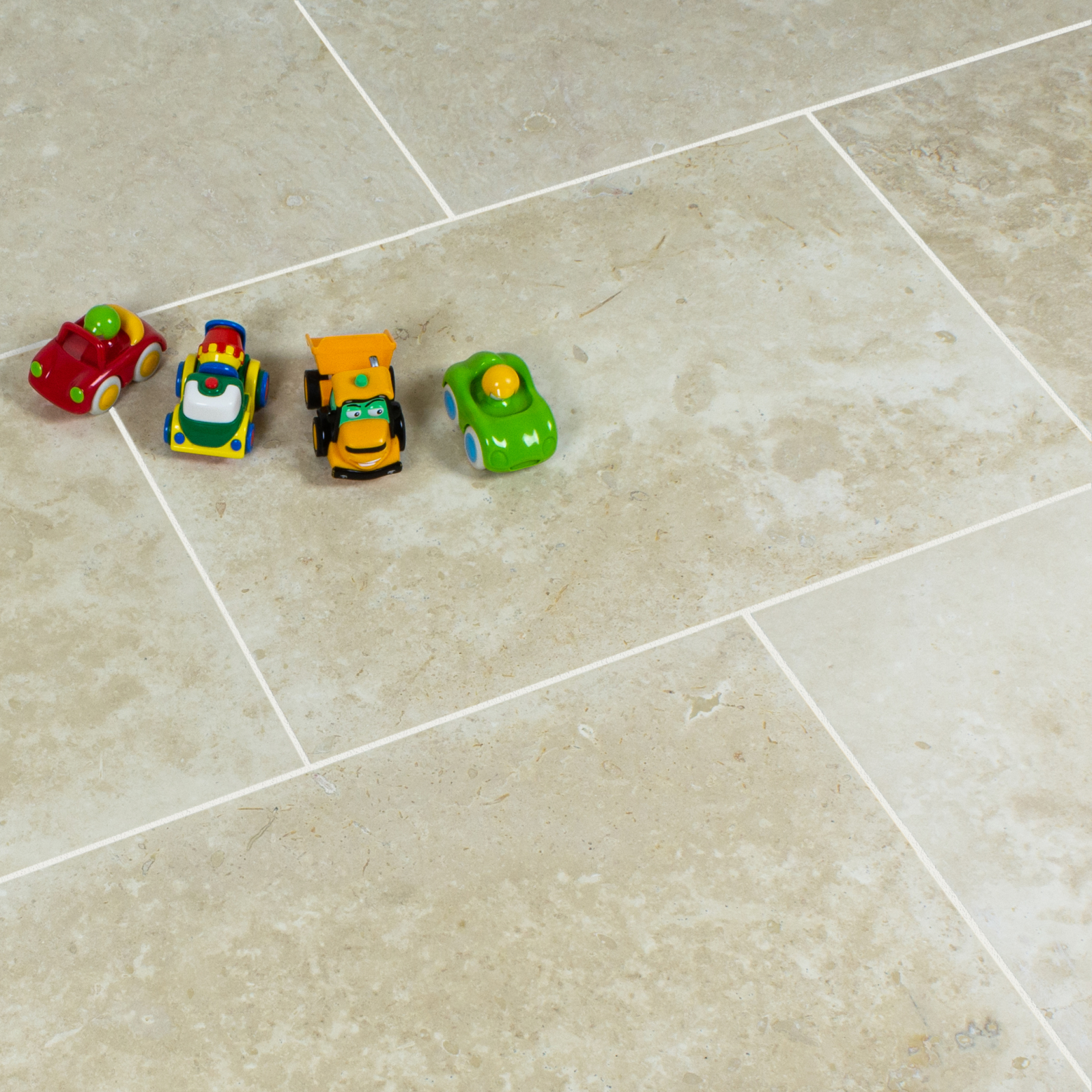
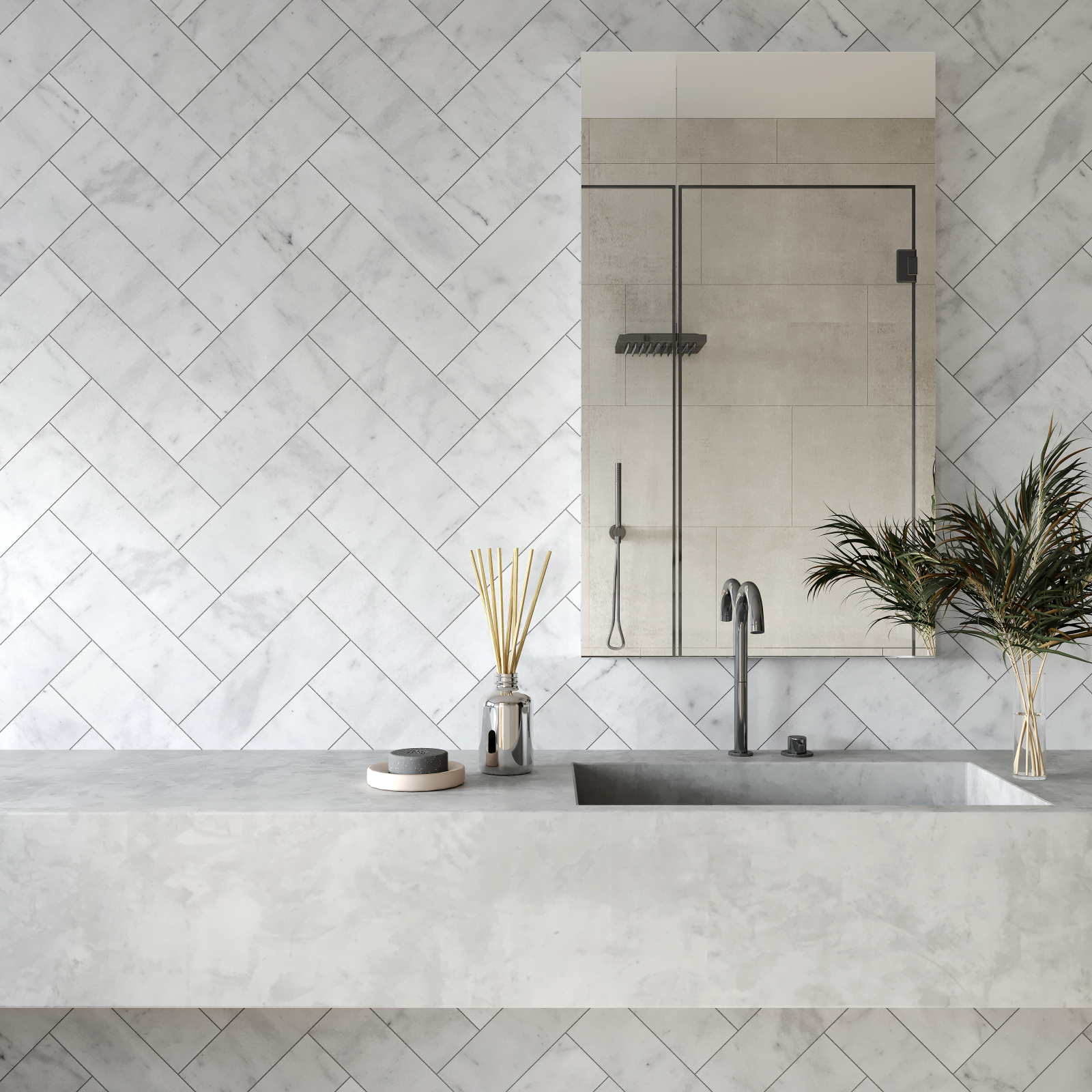
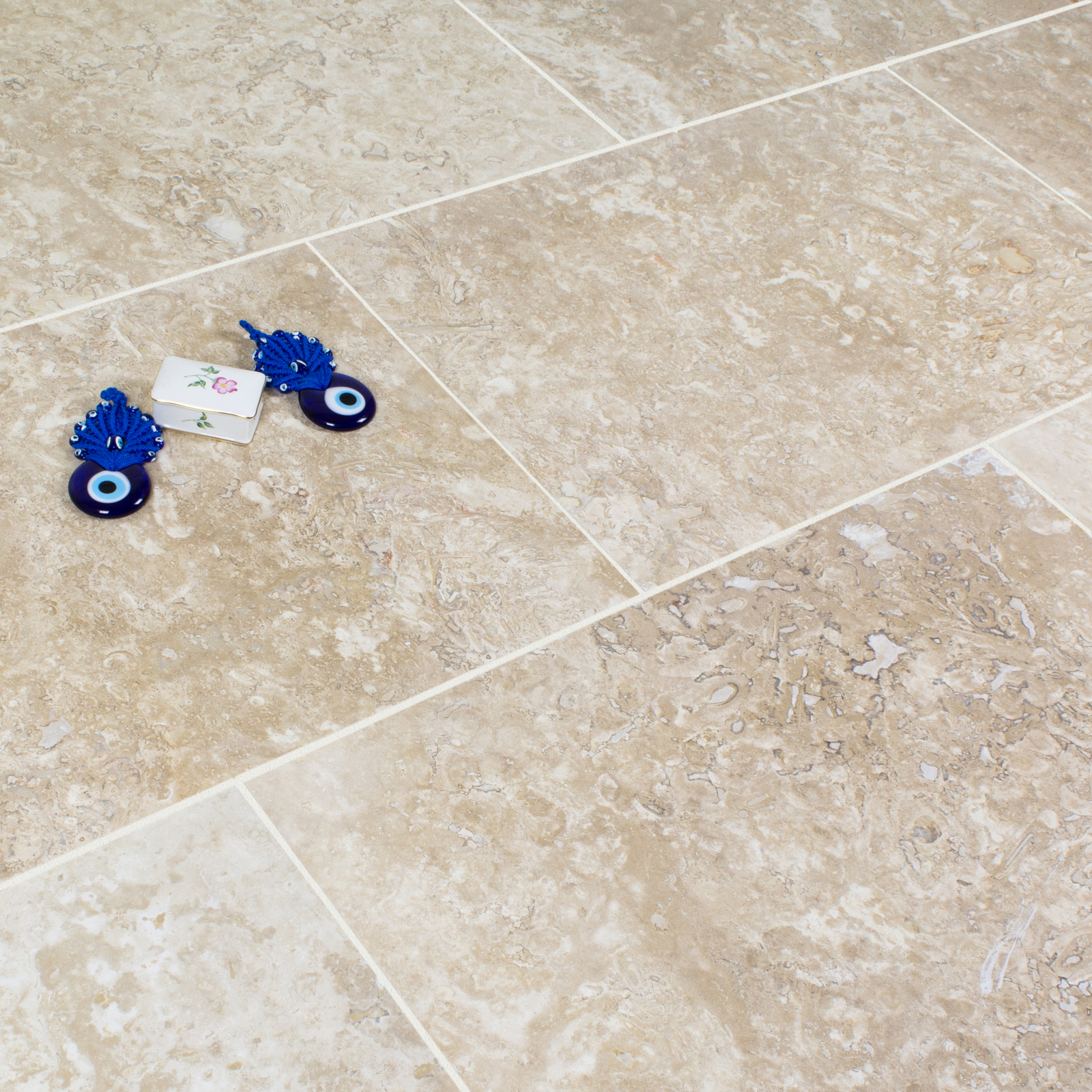
 REVIEWS
REVIEWS
